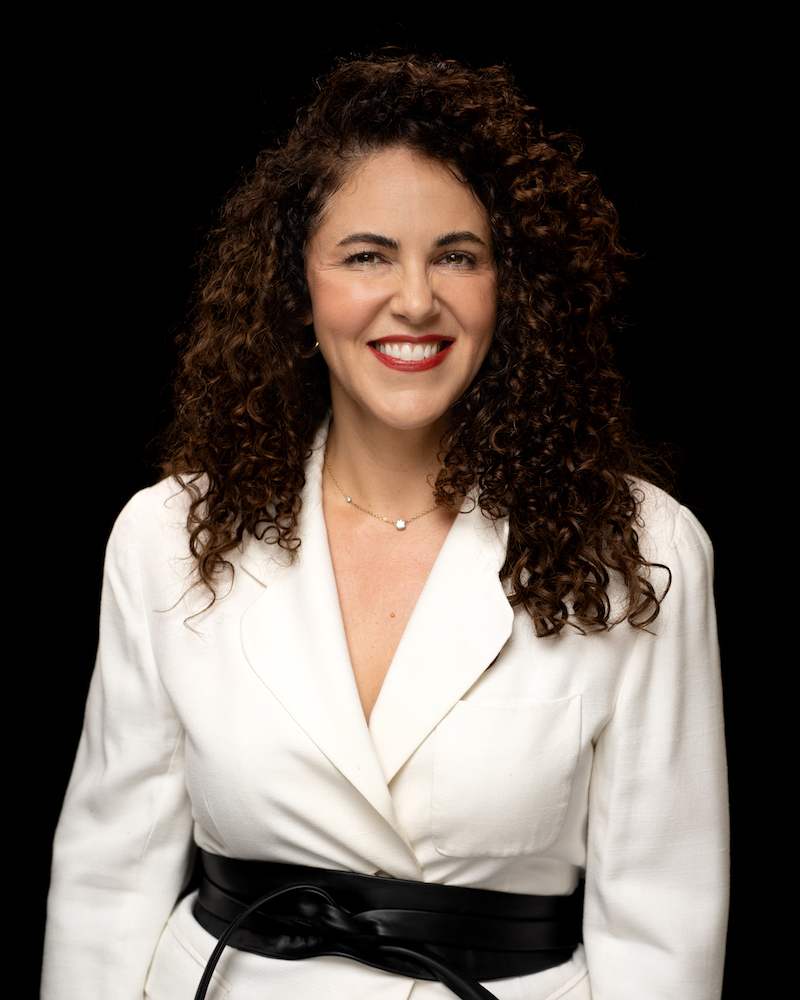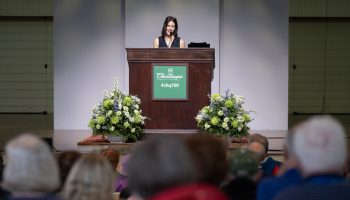
James Buckser
Staff writer
Laurel Braitman is a storyteller working in the world of medicine. As the founder of Writing Medicine and director of writing and storytelling at the Stanford School of Medicine, Braitman works to get doctors writing, not just for patient communication, but also for their own wellness.
Braitman will bring her knowledge to Chautauqua Institution’s Interfaith Lecture Series as a part of this week’s theme “Health and Faith: Considering the Center of Wellbeing in America,” Chautauquans can hear her talk, “Birds of Pray” at 2 p.m. today in the Hall of Philosophy, joined by Ulysses Burley III.
In her new book What Looks Like Bravery: An Epic Journey Through Loss and Love, Braitman traces the knowledge she gained on the path to become the person who she is today, which she plans to share.
“I’m going to be talking about my own journey, that I now help other people go on,” Braitman said. “Part of how I started on that journey is because I am the daughter of a physician who was dying my whole life.”
Her father, who suffered from terminal cancer, worked outdoors as a farmer and rancher in addition to his career as a physician. Aside from his career as a physician, he was also a farmer and rancher, working outdoors. Braitman said the way she made sense of what was happening in her life was “often wrapped up” in her family’s interactions with the natural world, something not often discussed in medicine. When she began teaching at Stanford, she told the university she didn’t want to teach inside of a classroom.
“I only wanted to teach on farms outside. I wanted people’s cell phones not to work; ideally, too, there would be farm animals and there would be healthy food,” Braitman said. “To this day, that is how I continue to teach.”
Braitman is a writer, teacher, and secular clinical chaplain-in-training. She holds a doctoral degree in History and Anthropology of Science from Massachusetts Institute of Technology. Author of two books, Braitman’s work has appeared in publications including The New York Times, The Guardian, and National Geographic.
She first made connections with the Stanford School of Medicine during the research process for her new book.
“When I started, I thought it would be really different,” Braitman said. “I thought I was going to write a book about how doctors die.”
Braitman said she thought that doctors, frequently dealing with death, might experience it differently than the general public.
She wanted to report that story in a medical setting, which led her to Stanford and Audrey Shafer, an anesthesiologist and poet, who started the medical humanities and arts program.
“She welcomed me in and she and her team made me a position,” Braitman said.
While she said she initially thought she was there “selfishly” reporting for her book, she soon found more.
“I wanted to do something in exchange,” Braitman said. “I found that most clinical students and most physician faculty weren’t getting much communications training.”
Braitman said she thought it was “unfortunate” that healthcare professionals were lacking in this aspect, because they help people make difficult choices.
“They have to be really good communicators of public health, science, and medicine,” Braitman said. “We expect them to do that, but we don’t always give them skills to do that.”
Braitman is also training to become a secular chaplain, which she said is in demand as more people lead secular lives while still wanting “spiritual companionship” during difficult moments.
“I don’t think you have to be a believer in an organized religion or even consider yourself … ‘a spiritual person’, whatever that means, to want to have someone by your bedside that can help you think through and find meaning in what you’re going through,” Braitman said.
Braitman hopes Chautauquans will leave her talk with a new perspective on difficult situations, finding and making meaning in their “toughest moments,” and seeing their grief as a “superpower.”
“Once you’ve lost something, you are marked,” Braitman said. “Grief makes you see a new color, taste a new taste. It’s like a new sensibility that makes your life more meaningful. It makes you less likely to take things for granted.”




